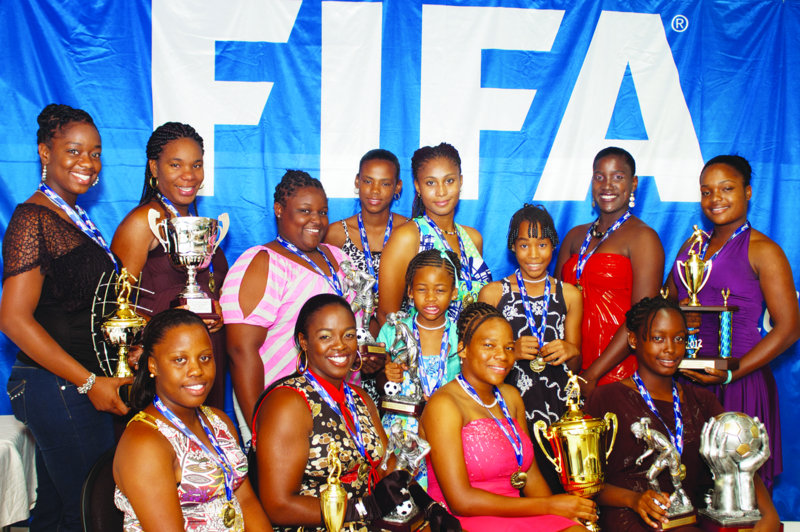
Just back in office this week from a number of extended official engagements in the Caribbean region,Anguilla’s Chief Minister, Hubert Hughes, says he is dissatisfied with governance and investment issues on the island.
As a result, he wants three separate delegations to visitAnguilla: two to investigate complaints he has against Governor Alistair Harrison and the Foreign and Commonwealth Office whom he continues to blame for some of the difficulties facing his Government. The other delegation is to advise on self-determination for the Government and people ofAnguilla.
Mr. Hughes spoke about one of the regional meetings he attended inSt. Vincent. “That meeting was about Good Governance and Development in Small Island States,” he reported in a Radio Anguilla interview on Monday this week. “People came from the Commonwealth Secretariat inLondonand some of their branches in the Caribbean.
“They were talking about how you conduct good governance and how you conduct and select requisite sustainable development for states likeAnguilla. There were a lot of presenters and a lot of people from the bigger islands, likeSt. Vincent, came in big delegations. Anguilla had three of us – Kathleen Rogers, Jerome Roberts and myself.
“I gave them an account of howAnguilla’s development was not really properly conducted. I am not really satisfied with the governance of Anguilla. I am not satisfied with the way investment projects are being handled as there is too much interference by the Foreign and Commonwealth Office’s representative…
“They were very sympathetic and were prepared even to send a fact-finding team to Anguilla if I request it. So I am thinking of requesting a fact-finding team from the Commonwealth Secretariat to come to Anguilla and solicit the truth for themselves and the true nature of how things are done in Anguilla…
“There was a categorical statement by me that I have been in office for almost two-and-a-half years, and I did everything to ensure that we have sustainable investment projects…in Anguilla because of the global situation. Those projects have all met serious difficulty with the Governor and thereforeAnguillais really crippled by that type of attitude…
For the immediate, there is very little you can do because whatever the Governor does inAnguillais supported by the Foreign Office. And for the long term, if this attitude continues, the only hope for the people ofAnguillais complete self-determination as was stated on Anguilla Day.”
Asked what steps his Government was taking towards that end, Chief Minister Hughes replied:
“First of all, we had to take advantage of a meeting which took place at the United Nations on the 20th of June, and to make sure we had an Anguillian representative in the form of Mrs. Josephine Gumbs-Connor to represent Anguilla at the United Nations Decolonisation Committee…At that meeting we also requested that the United Nations come in and assist us with the creation of a policy going forward as far as our self-determination project is concerned. They have willingly consented to do something about it…
“On the home front, we will properly have to inform the people as to what the true nature of our problems is and to solicit their opinion. Of course we have to have an opinion of our own and we will tell them according to what we have gathered. This is what we feel should happen, and we have to seek the people’s approval anyhow because politicians are elected by the people and are their servants. Therefore, you should go back to your master and report to your master about your stewardship and seek your master’s approval for the next step forward…”
Mr. Hughes also spoke about the CARICOM meeting he attended in St. Lucia, while on his regional trips, and reported on several of the matters discussed.
One of the matters the Chief Minister commented on was the planned visit to Anguilla, earlier in the year, of a CARICOM delegation, at his request, to inquire into repeated complaints he made about the Governor. It was agreed by the CARICOM Heads of Government, who met Suriname, to send a delegation of three Prime Ministers to Anguilla to investigate Mr. Hughes’ complaints.
“We had difficulty in getting the three Prime Ministers to come at one time,” the Chief Minister explained on Monday. “Sometimes when one can come the other two can’t. So we settled for a new formula where the Foreign Ministers, and one of the Prime Ministers, who would lead the delegation, and who is also the Foreign Minister of his country, [would come toAnguilla]. They should be coming very soon. I will have to communicate with them to tell them when is the best time they should come. But they would come like a Friday evening, stay over the Saturday, and leave on Sunday.”
Mr. Hughes’ statement regarding the coming of the restructured CARCOM delegation to Anguilla is substantiated by an extract from the communiqué issued following the meeting inSt. Lucia. The section dealing with Anguilla reads as follows:
“The Chief Minister of Anguilla updated Heads of Government regarding the governance situation in his territory arising from the difficult relationship with the British Governor. In response to the concerns expressed, Heads of Government decided to send a delegation of Foreign Ministers to visit the territory and to report their findings to the Bureau of the Conference.”








